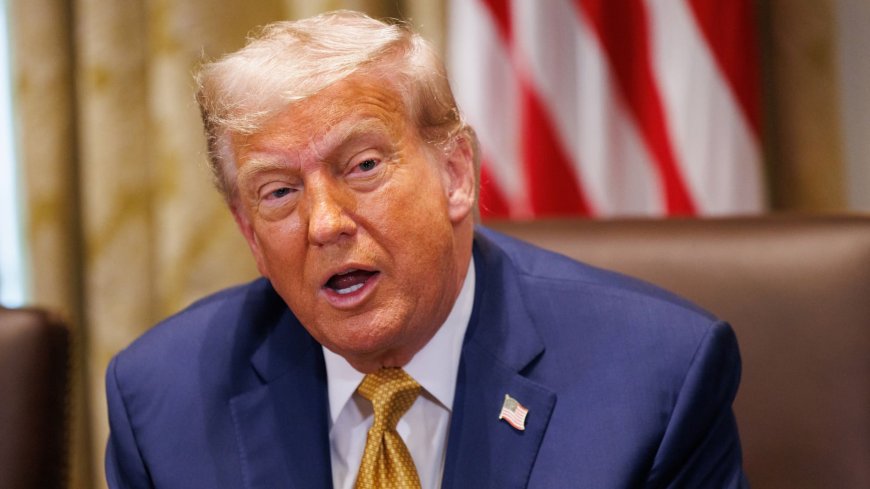Trump Threatens 200% Tariffs on Imported Pharmaceuticals
President Donald Trump announced plans to potentially impose tariffs as high as 200% on pharmaceutical imports into the U.S. The decision is expected to be finalized by the end of the month, with a grace period of about a year to allow companies to adjust. The pharmaceutical industry is bracing for potential disruptions and increased costs.

US President Donald Trump during a cabinet meeting at the White House in Washington, DC, US, on Tuesday, July 8, 2025.
President Donald Trump on Tuesday threatened to impose up to 200% tariffs on pharmaceuticals imported into the U.S. 'They're going to be tariffs at very high rate, like 200%,' Trump said during a Cabinet meeting.
But he suggested that those levies would not go into effect immediately, saying he will 'give people about a year, year and a half.'
'We'll give them a certain period of time to get their act together,' Trump said, apparently referring to drugmakers.
Details on pharmaceutical tariffs 'will come at the end of the month,' Commerce Secretary Howard Lutnick told CNBC after the Cabinet meeting.
'With pharmaceuticals and semiconductors, those studies are being completed at the end of the month, and so the president will then set his policies then, and I'm going to let him wait to decide how he's going to do it,' Lutnick said.
The president has repeatedly threatened and then changed course on tariff proposals, so there's no guarantee he will set pharmaceutical tariffs at the 200% rate. Pharmaceutical stocks were largely unchanged following Trump's comments.
It is Trump's most significant comment on pharmaceutical-specific tariffs since April, when his administration initiated a so-called Section 232 investigation on those products. That legal authority allows the Secretary of Commerce to investigate the impact of imports on national security.
Those planned tariffs would deal a long-awaited blow to pharmaceutical companies, many of which have pushed back and warned that the levies could drive up costs, deter investments in the U.S. and disrupt the drug supply chain, putting patients at risk. The industry is already navigating the fallout from Trump's drug pricing policies, which drugmakers argue threaten both their bottom lines and their capacity to invest in research and development.
Trump has said tariffs will incentivize drug companies to move manufacturing operations to the U.S. Eli Lilly, Johnson & Johnson, AbbVie and others are already putting more money into the U.S. after domestic drug manufacturing has shrunk dramatically over the last few decades.
What's Your Reaction?
 Like
0
Like
0
 Dislike
0
Dislike
0
 Love
0
Love
0
 Funny
0
Funny
0
 Angry
0
Angry
0
 Sad
0
Sad
0
 Wow
0
Wow
0
















































































































































































